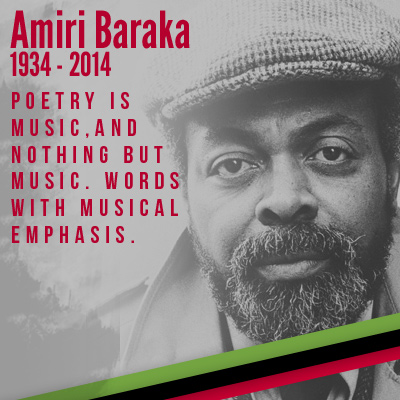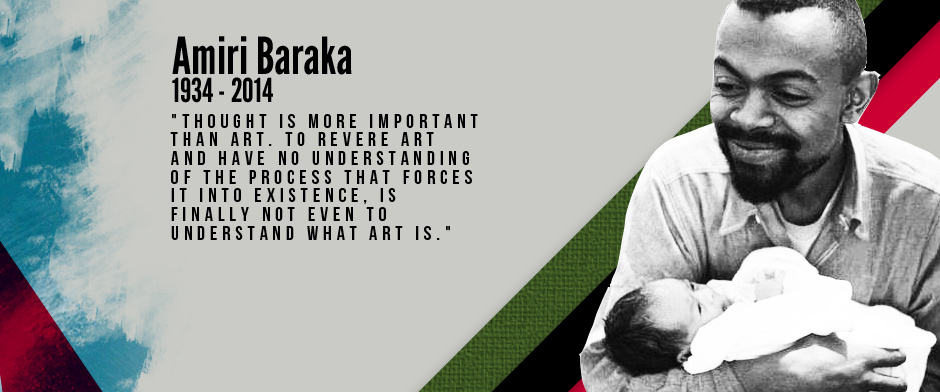
[su_pullquote]When I die, the consciousness I carry I will to black people. May they pick me apart and take the useful parts, the sweet meat of my feelings. And leave the bitter bullshit rotten white parts alone. — Amiri Baraka[/su_pullquote]
“What’s happening, man?,” B would say with genuine interest after I identified myself on the phone to chop up some business about this, that and a third. I always felt he was in the middle of writing something. How could he not be always writing something as prolific as he was? He always picked up, never annoyed. But he was also prone to abruptly hanging up on your ass when he’d said his piece. You’re just chatting away and—dial tone. On to his next sentence, I guess. I learned to quickly get to the point on the phone.
This is another trip. We’re visiting New-Ark Blues People headquarters one afternoon, and B starts grumbling about not being able to find a publisher for his latest “book about music.” “Yeah, right,” I told him. “Who wouldn’t want a new music book from the author of Blues People and Black Music?” As if I didn’t believe him, he goes upstairs to his study and returns with a tall stack of frayed, semi-organized sheets, each selection, as I recall, in different typesets as if they had been written with various word processors and printers over the course of some years. That heap of papers was the easiest book my editor Mary Francis and I secured for the Music of the African Diaspora Series at the University of California Press for which I’m series editor. It would become what I believe to be his final book-length collection of jazz criticism in his lifetime, the award-winning Diggin’: The Afro-American Soul of American Classical Music.
It felt great to help one of my heroes, although I wondered why I should have to. Baraka told me more than once that he believed the publishing industry was much more interested in his earlier works like Blues People because, back then, he was just figuring out what he wanted to say as a young writer. He wished that some of his out-of-print works—the ones with his more mature voice—would be made available for younger audiences. Honestly, it was difficult for me to square my view of him as “The great Amiri Baraka” with that of his own self-image: as a cat who had to continually fight and hustle for every opportunity. The brother was grinding all the time.
He’s always asked me, “so, how are they treating you at the university, man”? The subtext implied that it must be a hard row to hoe for a brother at an Ivy League institution. Of course, his distrust and unyielding critique of institutional structures was earned the hard way. So when his daughter, Professor Kellie Jones, was courted away from Yale University (to the incredulity of some of her colleagues) to take a position at Columbia University, the school that acquired his papers a few years back, he commented sarcastically to us, “Oh, they can’t believe you left ‘the church,’ huh?” We were done. His joke made the move easier. Many rightly credit the success of Kellie and her sister, the writer Lisa Jones, to the guidance, support and example of their mother, the amazing Hettie Jones. This is true! What is never mentioned, however, is that Baraka’s South Carolina-bred family of origin is brimming with an impressive roster of brilliant overachievers: journalists, lawyers, businesspeople, educators and more. And they tell the same jokes.
I resist the narrative of Baraka’s “leaving the Beat movement” for Black Nationalism and then on to Marxism and other intellectual terrain. It speaks more to our need to fit artists (and people, generally) into easily digestible categories for quick consumption much like the work the word “genre” achieves in the music world. Funny thing is when you talk to the folk that supposedly stayed in “La Boheme,” you’ll hear many of the same ideas and critiques of systematic racism and classism leveled by Baraka. I look at it more like he expanded into a more didactic space of liberation speak because, in his own words, “America was killing us.” At any live reading or performance that I attended of his, the old-line nationalists were not the only ones yelling “yeah,” and crushing for an autograph afterward. I don’t understand the need to reduce his work and its audience(s) to established categories. He actually believed he could disagree with you on this or that point and still be cool with you.
Collaborating with him was enlightening. Dude never took a prisoner, even if they were related to him. I don’t think he knew what holding his tongue or pen for that matter meant. Even with his kids. When Kellie was organizing her book Eyeminded: Living and Writing Contemporary Art, she decided to make it a family affair by including new and old works by her father, mother, sister and me to introduce sections of her own writing. We were the biggest geeks waiting for everyone’s essay to arrive. Hettie’s was predictably perfectly crafted, effusively supportive of the project and smart. Lisa—the quiet one—offered the most thorough, the best: a masterpiece of history telling, sisterly pride, luminous insights, and hilarity all rolled up in one. Baraka’s, well…it played the dozens on his oldest child yet at the same time managed to infuse art history with his own brand of critical sensibilities. Here’s a couple of examples:
What he wrote:
Most of it is “conceptual art”, which I have always thought of as related to newspaper puzzles and word games. Whose content consisted mostly of people trying to tell you how much smarter than you they are. Usually they ain’t!
What it really said:
Why didn’t you give me the Black Arts Movement artists to write about? Dammit.
What he wrote:
So I must confess to being daunted by what I, from jump, didn’t claim to dig too much. Plus the mountain of this paper work that I actually did read, amidst mountains of other paper work to which I am still pledged to read, made this a task of iron will based, of course, on sibling insistence and some portion of curiosity.
What it really said:
Only for you daughter, only for you. Check, please.
The love train never stopped among these hard cores. One time during art history panel discussion on which they both appeared KJ’s preceded Baraka’s. She left him some extra time to get his riff on about the art. As he took the stage, he jabbed, “that was a little short, wasn’t it?” Lawd, mama got hot. KJ played her art history card. I won’t share what that sounds like but it included some words that her mom warned her to never use in front of her grandparents back when she was a salty mouthed kid from the Lower East Side. She don’t take prisoners, either. I was cracking up.
One of the most touching things I can remember between these two was their exchange at the Hammer Museum two years ago that celebrated the publication of Eyeminded. I love how he lauds his daughter’s exhibition, Now Dig This: Art and Black Los Angeles, 1960-1980; how he talks with pride about the intellectual and spiritual connection between KJ and Lisa as evidenced in their essays; the fierceness of intellect and political commitment on display; the mutual respect even as she helps him remember an artist’s name or a particular word. Just another day in the life of the idea family. Listen to how she laughs at his jokes; its history unfolding lovingly before us.
Tags: Amiri Baraka, Hammer Museum, Kellie Jones, leroi jones

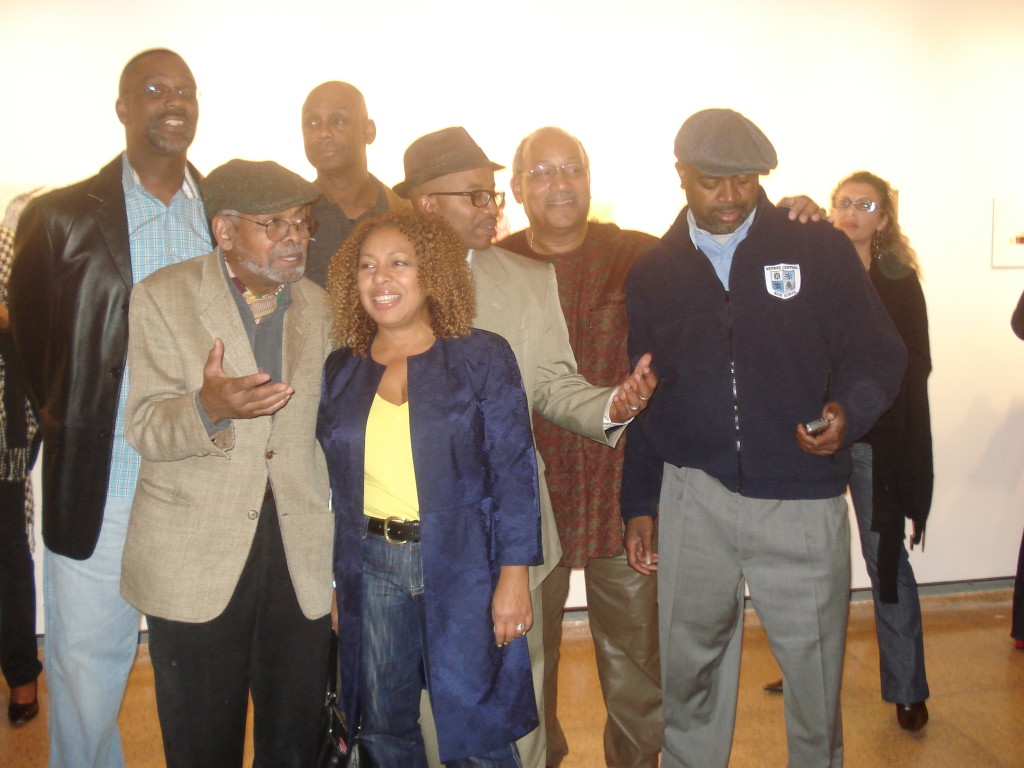
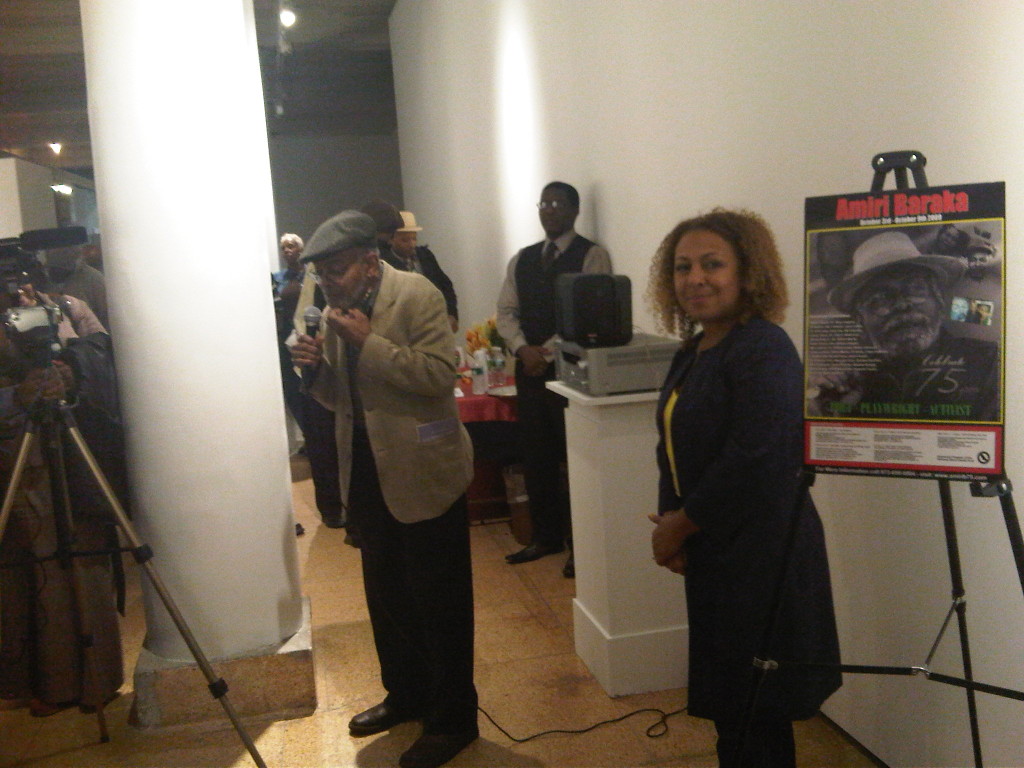
 Share On Facebook
Share On Facebook Tweet It
Tweet It


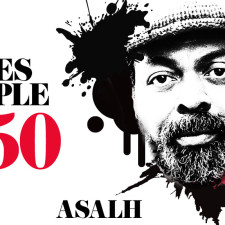
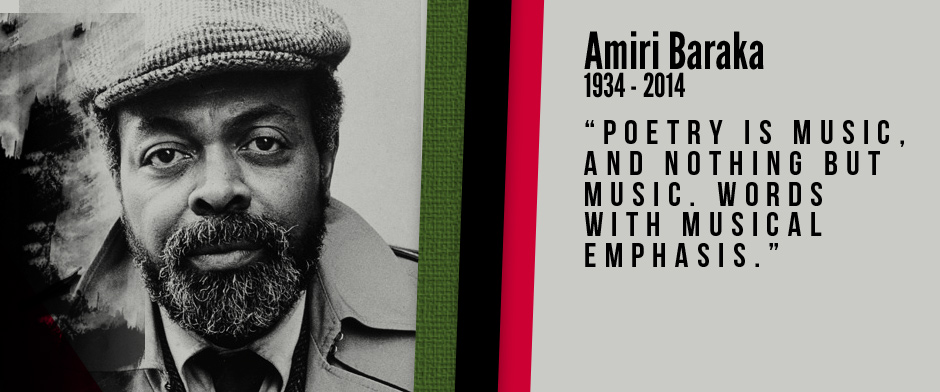
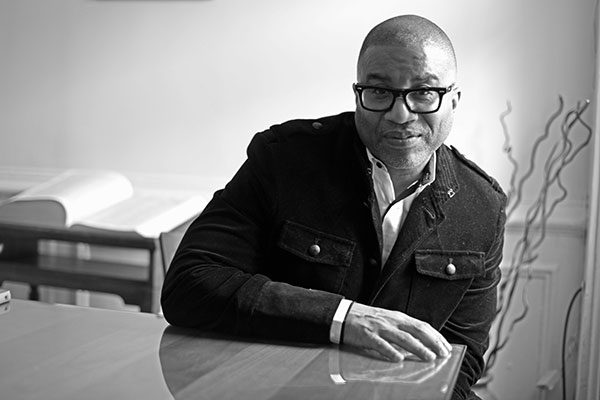
![[Video] Greg Tate Delivers Timely Keynote Address at SEM](https://musiqology.com/blog/wp-content/uploads/2015/01/gregtate-225x225.jpg)
